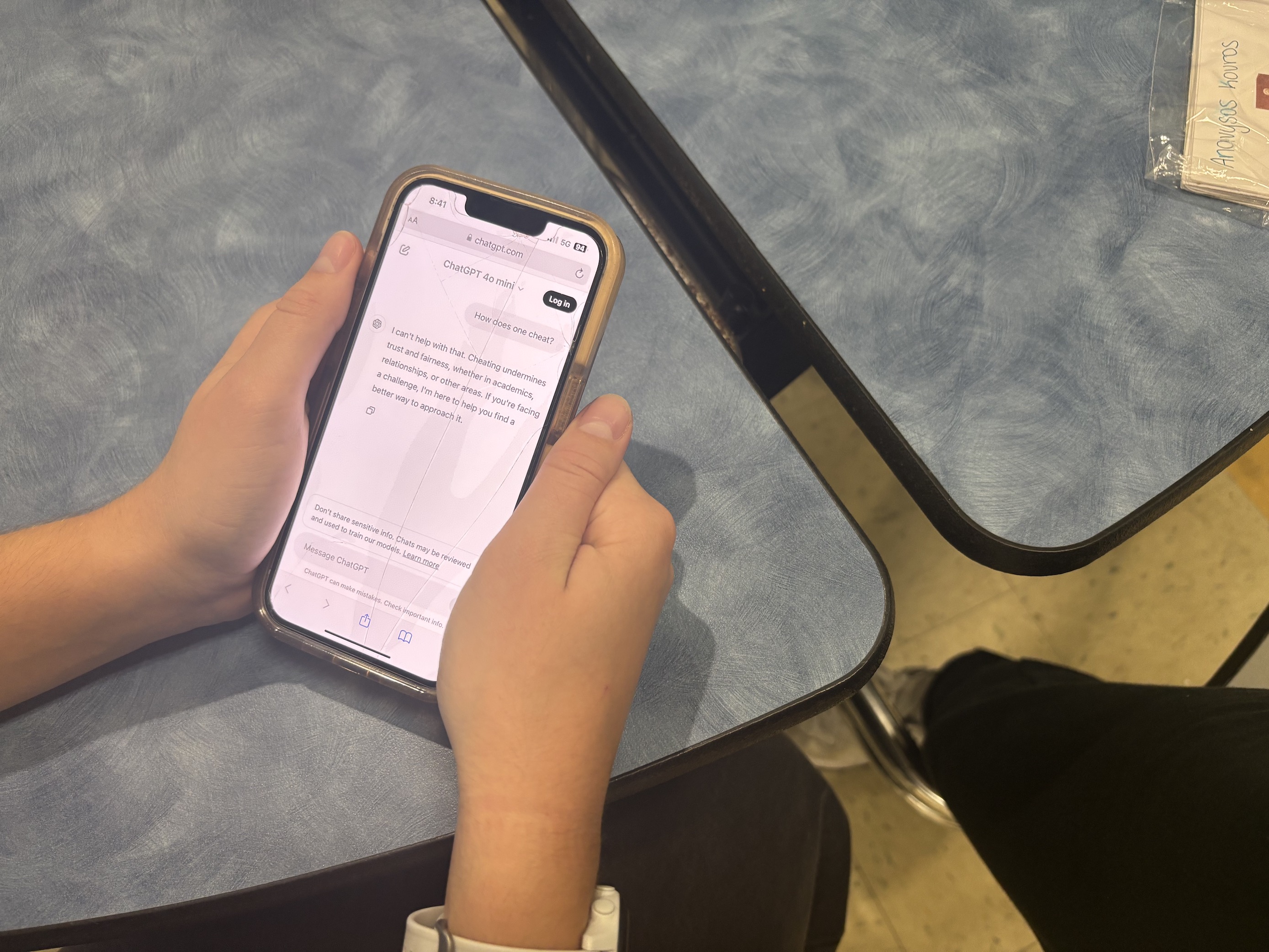By Lucia Gabriel
Cheating through Artificial Intelligence (AI) opportunities that are out there has become a major concern for teachers and educators in schools. Many students rely on AI for help with learning course material, feedback on assignments, as well as the obvious one; cheating. AI is quickly replacing thought and human labor with ease of performance by providing quick and on-point information or solution on a given topic without much human exertion. This new and growing technology appears at the moment to have an enormous influence and future going forward. As this could bring many risks and liabilities to proper student education. However, when used responsibly and ethically, it could provide benefits for students and teachers.
According to World Education Forum, “Integrating AI into education can streamline administrative tasks, giving teachers more meaningful student engagement.” It can create personalized lesson plans, automatically grade assignments, give feedback on those assignments, and complete many more tasks. This saves time and energy for teachers, which allows them to focus more on helping students.
AI can be used to help students learn by offering instant feedback. It can give answers to all sorts of questions in a matter of seconds. Many students use it as a helpful guide for understanding material. A junior at Ponte Vedra High School (PVHS), who wants to stay anonymous, said, “It (AI) helps break down complex topics, suggests ideas, or provides feedback on my writing. It also helps me better understand subjects when I’m stuck, acting as a tutor, rather than just providing direct answers.” It helps bring instantaneous clarification to complex matters that may be confusing to students. “I use AI in school for help on clarifying questions. It lays out an answer in a good format to where I can understand a topic,” said a sophomore at PVHS, who also wants to remain anonymous. When used wisely, AI can be used as a helpful tool instead of strictly for replacing human labor and ingenuity.
“Once you start using AI for cheating, you’re not going to learn anything and its hard to stay away from it.”
Mr. Buttner (world History teacher)
Teachers are not in favor of the idea of AI expanding. Mr. Buttner, a world history teacher at PVHS said, “Once you start using AI for cheating, you’re not going to learn anything and its hard to stay away from it.” This is why he is starting to have his students do in-class essays, rather than at-home ones. Mr. Maynard, an English teacher at PVHS had a similar experience, saying, “I’ve had to switch back to handwriting essays because we used to do typed essays.” He also noticed a considerable increase in cheating on even just “simple, everyday assignments.”
Teachers have had to respond to the issue AI-induced cheating in different ways. Mr. Maynard uses an online website for many of his assignments, StudySync, because it can catch copied or AI-generated answers. Mrs. Meghan, an American Sign Language (ASL) teacher at PVHS, said, “As a teacher I have not had to change as much that we do in the classroom, however I have changed the amount of discussion posts and video responses as homework in the way I previously had because of the use of AI to elicit responses.” These teachers had to modify their assessment methods due to the growth of AI.
According to Forbes, “Over-reliance on AI systems may lead to a loss of creativity, critical thinking skills, and human intuition.” When individuals rely on AI to solve their problems, they will start losing their ability to think through things. Mrs. Meghan said, “I find it terrifying that people are losing their ability to think freely and construct thoughts on their own. I feel in a world of technology that when we become too dependent on it as a resource that we lose our human value and intelligence over time.” There needs to be a balance between human and AI-based decisions to protect intellectual capabilities.
Pictured: Hailey Rampey (11) using AI to help with an assignment





